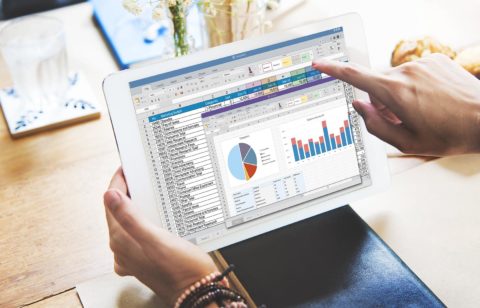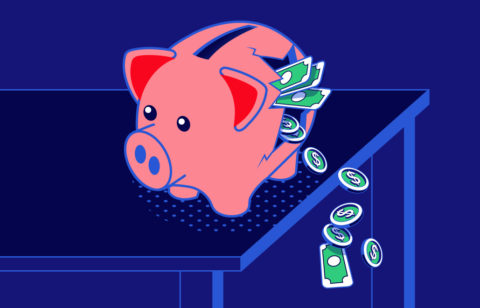An alarmingly growing number of students are graduating from college with debt. This has left many of them asking themselves, “Where did I go wrong? How did I get into such a dire financial mess so early in life?”
Before the Great Recession and the pandemic, many parents mistakenly believed that their children were too young to learn about finances and money management. These sorts of topics were typically hush-hush, discussed between adults while the kids played in the other room.
While children normally don’t start working until they are older, it’s highly beneficial for them to understand the value of money early on. After everything the economy has been through, it wouldn’t hurt for them to start learning about finances as soon as they can grasp concepts, around five or six years old.
Truths about teaching personal finance to children
Unfortunately, personal finance courses are not readily available or required in schools. As a result, many high schoolers enter college lacking basic financial skills such as how to use a credit card responsibly or how to handle the student loan debt that often accompanies higher education.
Seventeen U.S. states currently require high school students to take a financial literacy class before graduating. Other states require that this type, of course, be offered or integrated into other subjects. And a few states, such as Alaska, California, Wyoming, and Washington D.C., lack any financial literacy requirements.
Fortunately, 7 out of 10 teachers feel confident enough to teach a personal finance course, which is a significant increase from 1 out of 10 in 2009. This provides hope that financial literacy will be more widely taught in U.S. schools in the future.
Until then, it’s important for at least one parent to share finance-related information and guidance throughout their child’s life. You can do this by role-modeling smart money management skills. Your child can then follow in your footsteps by being prepared to handle any financial hurdles that often occur during adulthood, such as debt and today’s inflation.
Education for smarter financial choices
Teaching kids about smart money management skills early on doesn’t mean they have to become financial wizards. It simply means you must educate them on basic concepts like saving, spending, budgeting, and earning. Many parents concentrate on saving – which is okay, but there is more to it.
According to Investopedia.com, teaching kids about personal finance should include understanding the relationship between saving, spending, and earning. They should know where the money is coming from in order to understand why they need to save and spend carefully.
After all, the money you earn is appreciated because of your hard work. And the harder you work for something, the more value it carries for you. This is an important concept your children should grasp as you teach them about money.
Accommodate their learning style(s)
Teaching finances often falls on deaf ears since most children consider this complex topic dull. If you know your child’s favorite learning style, you can create lessons or activities that cater to it.
For example, kid-friendly videos about basic personal finance can be a good option for visual learners. If your child focuses better on words, they can learn through personal finance books specifically designed for young readers.
Fun ways to teach your child about money
Teaching kids about finances is easier when you put it into context as a theoretical lesson. However, that is not always the best way for your kids to grasp the concept—especially if they are still young.
Sometimes, it depends on the implementation and how you relate the financial concepts to their daily lives. The road toward financial literacy will only be successful if you include practical applications of the concepts
Since each child is unique, there is no specific formula when it comes to financially educating them. The first step is to understand the extent of their learning capabilities before finalizing how the lessons will be applied. But that doesn’t mean you have to start from scratch when determining which activities will help them.
You will find helpful suggestions at Education.com when it comes to teaching financial literacy. The site’s blog offers a few creative and simple methods you can use at home.
1. Encourage learning through games
You can teach kids about currency, identifying coins, and making financial decisions online, DIY, or with board games. Younger children can benefit from simple activities such as counting while school-aged children can grasp concepts that involve simple math such as adding up money.
2. Play pretend
Get creative and pretend you are running an imaginary restaurant or store. Use fake dollar bills (from games like Monopoly or the like), to have your child exchange cash for goods. This can teach them about the value of money and provide an idea of how much certain items cost. You can then raise the prices to teach them how inflation takes more money for fewer goods.
3. Have a garage sale
This is a great opportunity to not only declutter and earn extra cash but to also give your child a real-world example of how money is exchanged for goods. They will also learn the value of recycling items instead of just throwing them away. To provide a hands-on learning experience, allow them to help you set prices or count cash.
4. Use your weekly shopping as a learning opportunity
The next time you head to the store with your child, point out the prices of the items you purchase. You can even challenge them to see how many items they can fit in the cart while staying within the set budget. If you want to get a bit more sophisticated for an older child, you can introduce them to smart spending by comparing the prices of similar goods.
5. Set an allowance
An allowance can teach young children about the importance of hard work and saving the money they earn. You can set a monthly amount and/or reward them with something they have their eye on when they behave well, complete chores, or earn good grades. Once they are old enough to work, they should have a stronger grasp on the importance of spending and saving.
It’s never too early to start
As you can see, personal finance for kids can come in all forms depending on their age. If they can relate to the activities, they are more likely to develop the interest needed to actively listen and participate in the lessons being taught. Then, they can use their learning throughout their lives and have a better chance of living life without debt.







